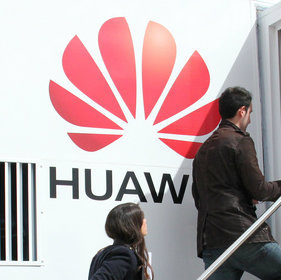
Huawei has challenged recent moves by Romania and Poland to exclude the Chinese vendor from their national 5G networks, arguing these proposals breach EU guidelines.
In a letter to EU competition commissioner Margrethe Vestager, Huawei said the moves were "contrary to the fundamental principles of the EU" and "are predicated on several violations of EU law," hinting it may decide to pursue a legal challenge.
Both Bucharest and Warsaw signed agreements with the US to exclude Huawei (as well as ZTE) from their national 5G infrastructure.
The two countries have followed up with draft national legislation with the same effect.
Romania and Poland are breaching EU principles guaranteeing free movement of goods, says Huawei, since it is a supplier established in the EU.
Meanwhile, excluding suppliers because of their geographic origin violates the EU's principles of non-discrimination and proportionality, it argues.
Vestager's head of cabinet, Kim Jorgensen, met with Huawei representatives on September 30, at Huawei's request.
The EU released a summary of the meeting, saying Jorgensen "took note of the points made by the company and briefly mentioned the outcomes of the first EU-China High-level digital dialogue on 10 September 2020."
My way or Huawei?
Romania's Prime Minister Ludovic Orban said on November 1 that Huawei did not meet the country's security conditions, and with respect to 5G could not be Bucharest's partner.
"We'll choose a company that poses no threat to national security," he told the Romanian service of the US government-funded Radio Free Europe.
Poland's Ministry of Digital Affairs published draft new cybersecurity legislation on September 8.
This law goes beyond Poland's earlier legislation in January based on a common EU approach, and will allow a government committee to divide possible 5G equipment suppliers into four groups.
This categorization will rate suppliers based on "threats to the implementation of allied and European commitments" and "threats to national security of economic, counter-intelligence and terrorist nature."
Want to know more about 5G? Check out our dedicated 5G content channel here on Light Reading.
Installed equipment from "moderate risk" suppliers can remain in place, but buying new equipment from them is forbidden.
Equipment from "high risk" companies will need to be removed within five years.
Some analysts have argued Huawei may end up falling into the moderate, and not the highest, risk camp.
Orange, Romania's largest telecoms operator, rolled out 5G coverage for all of Bucharest in late August.
It also offers 5G network to mobile subscribers in the Romanian cities of Otopeni, Voluntari, Cluj-Napoca, Iasi, Timisoara, Brasov, Constanta and Mamaia.
A1 Bulgaria, Telenor and Vivacom also are preparing 5G launches in the country.
Meanwhile in Poland, Plus launched 5G coverage on the 2.6GHz frequency in May, using Ericsson RAN and core equipment.
Orange and T-Mobile joined the fray with their own offerings in June.
Poland's largest mobile provider, Play, relies most heavily on Huawei equipment and would be most affected by the ban.
There is particularly bad blood between Warsaw and Huawei.
A Warsaw-based sales director at Huawei, who was also an attaché in China's embassy in the country, was arrested in January 2019 for espionage, along with a former member of Poland's intelligence services.
Piotr Durbajlo had been a specialist in cybersecurity.
Huawei said the activities of Wang Weijing (who in Poland used the name Stanisław Wang) bore "no relation" to his work for the telco, and that they had terminated his employment for bringing Huawei into disrepute.
Related posts:
— Padraig Belton, contributing editor, special to Light Reading
About the Author(s)
You May Also Like












